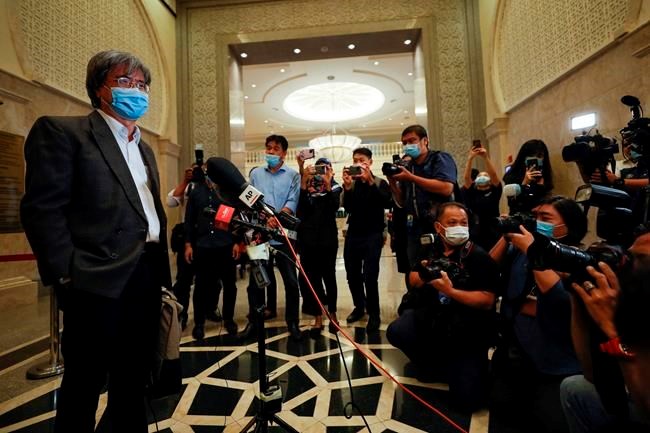KUALA LUMPUR, Malaysia — Malaysia made an embarrassing U-turn on Friday after a minister sparked a furor over his announcement that all video production, including those on social media, must be licensed amid a row with news broadcaster Al-Jazeera.
Communications Minister Saifuddin Abdullah sparked confusion Thursday after saying in parliament that every film and video, including those produced by media groups and social media users, must comply with a 1981 Film Act that requires licensing. Applicants must also to have a registered company with a 50,000 ringgit ($11,700) paid-up capital.
But he backtracked in a statement Friday, saying that social media users are exempted.
“The government of Malaysia stresses that it stands by the principle of media independence and individual freedom on social media,” Saifuddin said. “Social media users are free to use platforms such as Tik Tok, YouTube and others to produce and upload videos without the need to apply for a license or worry that they will be charged.”
However, he didn’t make clear whether media organizations would need a license to produce news documentaries or online content.
Saifuddin's comments in parliament came after Al-Jazeera refuted claims it needed a license to produce a July 3 news documentary on the treatment of undocumented immigrants. Police have opened an investigation after officials complained the documentary was inaccurate and biased.
Many Malaysians and opposition lawmakers have slammed Saifuddin's announcement as affecting videos produced on social media. Over 80% of Malaysia’s 32 million people are social media users.
Opposition leader Anwar Ibrahim has said the licensing rule was an “alarming development amid attacks and harassment on media including Al-Jazeera” under new Prime Minister Muhyiddin Yassin, who took power in March. He alleged it was a bid to stifle dissent.
The Centre for Independent Journalism has also said the government should counter the Al-Jazeera documentary with facts, instead of using a police investigation and licensing requirement to retaliate against the broadcaster.
Saifuddin said the government has no intention of using the act to stifle online freedom of expression. He acknowledged that the act was outdated and would be fine-tuned but didn’t elaborate.
Rights activists have already voiced concern over freedom of speech and media independence under the new government. Satellite television provider Astro was recently fined by the Malaysian Communications and Multimedia Commission for airing an Al-Jazeera documentary in 2015 over the 2006 murder of a Mongolian woman that allegedly contained “offensive content."
Former Prime Minister Najib Razak, whose long-ruling party was ousted in 2018 polls but made a comeback as part of the new government, was implicated in the murder. He is currently on trial on corruption charges.
Popular online news portal Malaysiakini and its editor face rare contempt proceedings from the attorney-general over comments posted by readers against the judiciary. Police also questioned an activist about a social media post alleging mistreatment of refugees at immigration detention
A journalist from the Hong Kong-based South China Morning Post was also questioned earlier about her reporting on migrant arrests.
Eileen Ng, The Associated Press



